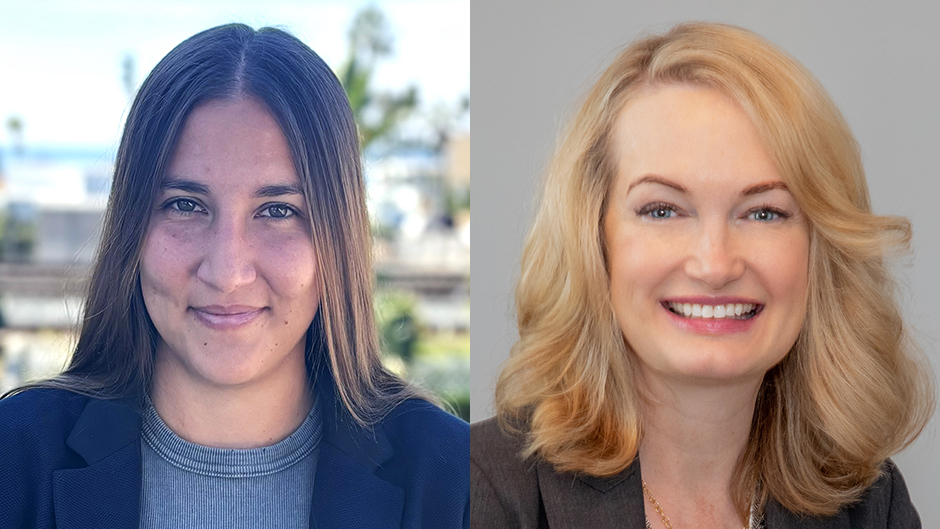In the realm of professional growth, the importance of initiating mentorship connections cannot be overstated. But as more firms have embraced remote and hybrid working arrangements, it's become increasingly harder to recreate organic "water cooler moments" between mentees and mentors.
While this poses a challenge, it also has its benefits. In no other environment would I be able to have Kimberly Boldt, a partner at Ratzan Weissman & Boldt in Miami, Florida as a mentor while I reside in San Diego, California.
By leveraging technology, setting clear objectives and intentionally fostering a personal connection, the professional relationship we've cultivated has transcended physical location and has become a testament to the profound impact early mentorship and remote guidance can have on one's personal and professional growth.
Here are three takeaways from my experience as a mentee.
Find a Mentor Early
Kimberly hired me as a clerk my first summer at the University of Miami School of Law. At the time, my knowledge of the law was confined to my textbooks, and I was curious to how these principles applied in real life. Instead of giving me tasks that could only be done by someone with my at-the-time legal knowledge, Kimberly and her team allowed me to ask questions and be a collaborative part of their highly skilled legal writing and editing sessions. This type of mentorship and inclusivity at a young age was key to building my skill set.
Having a mentor be a guiding force while pursuing a law degree is beneficial for learning crucial insights, practical skills and a nuanced understanding of the legal landscape. Law school mentorship is likely to lead to a job after graduation, just how mine led me to assume a role as an associate at RWB. My relationship with Kimberly is a testament to how a mentor can not only help guide you and provide invaluable experience, but also open doors to future job opportunities.
Go Beyond Conventional Mentorship
It is important to have more than just good communication with your boss. As a mentor, Kimberly offers more than just guidance on legal matters. She goes beyond the subject matter, allowing me into her daily life as an attorney. Leveraging technology and the remote work landscape, we use Zoom and Teams to not only discuss casework but also her workspace and daily schedule.
By walking me through everything from her desk organization to her decision-making processes in a legal matter, Kimberly has equipped me with the tools to an efficient workflow and develop my own legal strategies. It's not unlike preparing for jury trial, where every detail is taken into consideration. Kimberly has taught me, and many other mentees at the firm, the benefits of an inclusive approach and how attentive active listening can result in everyday progress.
These practical examples make the mentorship process a more immersive experience, helping me establish the foundational principles, habits, and confidence necessary to develop my own skills and professional mindset.
Embrace Technology
Though remote work connects us in many ways, it can be isolating without the structures in place to help attorneys build and sustain strong relationships within their firms. But if leveraged effectively and proactively, technology can play a key role in fostering these connections. It facilitates seamless communication and collaboration, overcoming geographical barriers and allowing for the sharing of documents, resources, and other information in real time, enhancing the learning experience for mentees. Using technology in this way can enhance the efficiency of mentorship, making it easier to track progress, set goals and provide feedback. Regular virtual meetings are a convenient way to stay connected despite busy schedules, and resources, such as LinkedIn and Eventbrite, have helped me reach out to industry leaders and attend professional networking events.
Mentorship is not only beneficial for the mentee, but also for the mentor. By taking the time to teach the next generation, mentors can sharpen their leadership and communication abilities, broaden their perspective and reinforce their own knowledge and skills. The process and resulting relationship also creates a sense of fulfillment, as mentors witness the positive impact of their guidance. For example, I recently passed the July 2023 California Bar examination. While preparing for this exam, Kimberly and I often spoke about my workload and the time I felt I needed to study. Although Kimberly and I are not physically in the same office, and she cannot see me to gauge my productivity and/or stress levels, at all hours of the day we keep an open line of communication through call, text, Teams, and email, letting us able to communicate effectively to ensure a successful result.
Relationships like the one Kimberly has built with me are also crucial for the future of our profession, facilitating the transfer of practical skills, ethical principles and institutional knowledge from experienced practitioners to the next generation of attorneys.
Brooke M. Mesner is an attorney at Ratzan Weissman & Boldt. She attended law school at the University of Miami and was awarded a dean-merit scholarship for all three years. Her studies were focused on personal injury, complex litigation, business torts and constitutional law.
The article was originally published in ALM's Daily Business Review and is reprinted with their permission.

